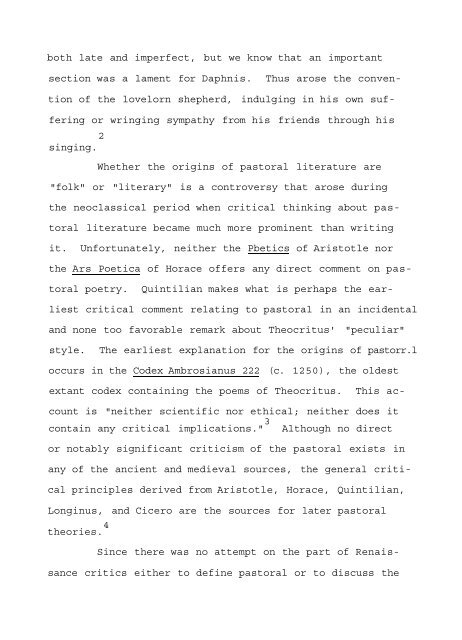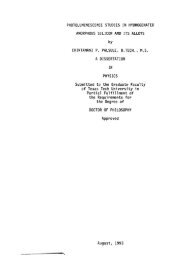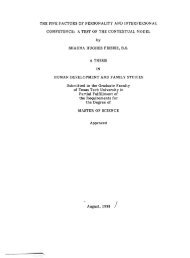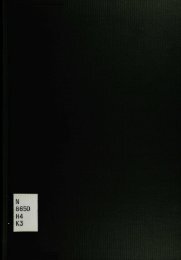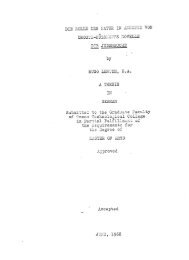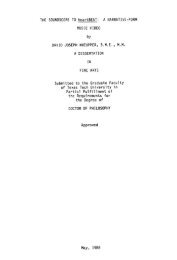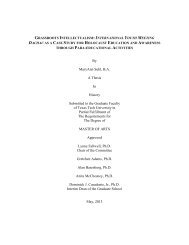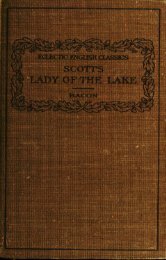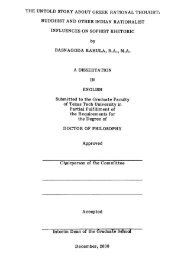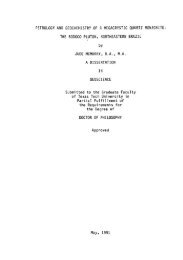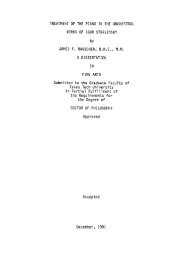THE EVOLUTION OF ALLEGORY IN THE PASTORAL ... - Repositories
THE EVOLUTION OF ALLEGORY IN THE PASTORAL ... - Repositories
THE EVOLUTION OF ALLEGORY IN THE PASTORAL ... - Repositories
You also want an ePaper? Increase the reach of your titles
YUMPU automatically turns print PDFs into web optimized ePapers that Google loves.
oth late and imperfect, but we know that an important<br />
section was a lament for Daphnis.<br />
Thus arose the convention<br />
of the lovelorn shepherd, indulging in his own suffering<br />
or wringing sympathy from his friends through his<br />
2<br />
singing.<br />
Whether the origins of pastoral literature are<br />
"folk" or "literary" is a controversy that arose during<br />
the neoclassical period when critical thinking about pastoral<br />
literature became much more prominent than writing<br />
it.<br />
Unfortunately, neither the Pbetics of Aristotle nor<br />
the Ars Poetica of Horace offers any direct comment on pastoral<br />
poetry.<br />
Quintilian makes what is perhaps the earliest<br />
critical comment relating to pastoral in an incidental<br />
and none too favorable remark about Theocritus' "peculiar"<br />
style.<br />
The earliest explanation for the origins of pastorr.l<br />
occurs in the Codex Ambrosianus 222 (c. 1250), the oldest<br />
extant codex containing the poems of Theocritus.<br />
This account<br />
is "neither scientific nor ethical; neither does it<br />
3<br />
contain any critical implications." Although no direct<br />
or notably significant criticism of the pastoral exists in<br />
any of the ancient and medieval sources, the general critical<br />
principles derived from Aristotle, Horace, Quintilian,<br />
Longinus, and Cicero are the sources for later pastoral<br />
4<br />
theories.<br />
Since there was no attempt on the part of Renaissance<br />
critics either to define pastoral or to discuss the


